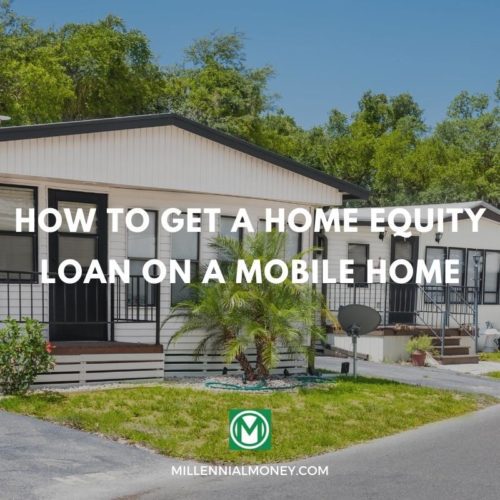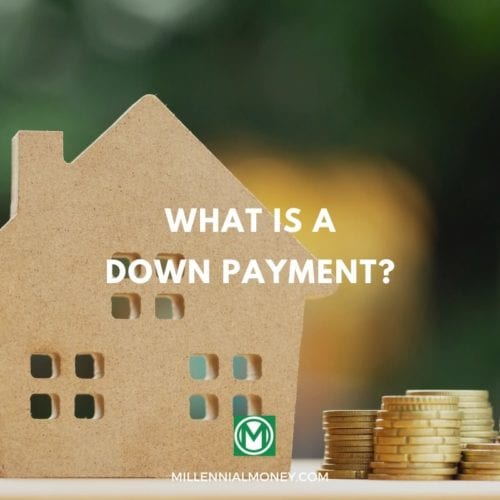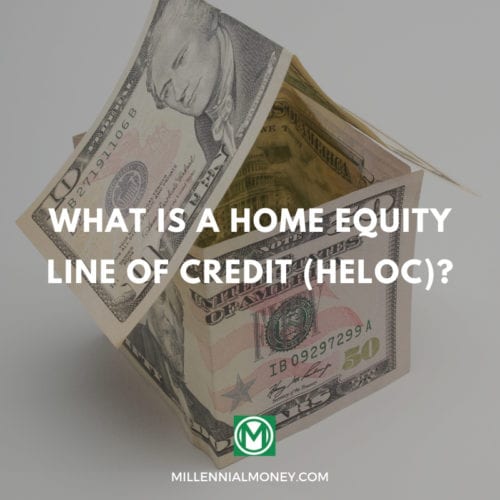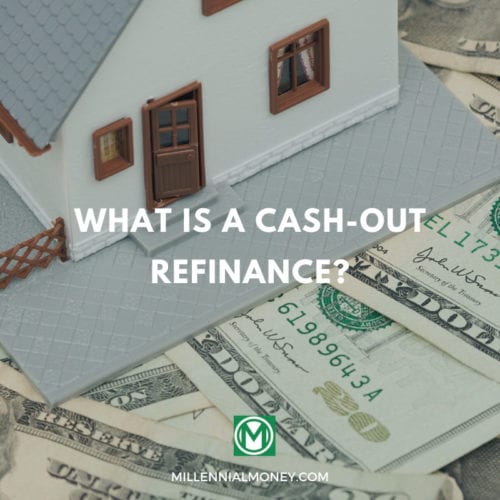If you’re on active duty or you’re a veteran and you’re looking to buy or refinance a home, you should give a VA Home Loan first priority.
These loans have benefits that are available only to current and previous members of the military and unavailable with other mortgage types.
The process starts with working with the best VA loan lenders who will be able to guide you through the entire process.
Working with the right lender – one that specializes in VA loans – will create 90 percent of your success in getting the right loan for you.
The 11 Best Lenders For VA Loans
Here are the top 11 nationwide VA loan lenders for 2026:
- 🏆 Veterans United Home Loans: Best Overall
- Rocket Mortgage: Best Online Lender For VA Home Loans
- USAA: Best Bank for VA Home Loans
- Navy Federal Credit Union: Best Credit Union for VA Loans
- Veterans First Mortgage: Best VA Refinance Lender
- Alterra Home Loans: Best for Alternative Underwriting and Spanish Speaking Borrowers
- PenFed Credit Union: Best Alternative to USAA or Navy Federal
- New American: Best for Personal Attention
- Movement Mortgage: Best for Fast Decisions
- Cross Country Mortgage: Best for Personal Relationships
- Lending Tree: Best for Comparison Shopping
1. Veterans United Home Loans
Veterans United Home Loans is the No. 1 VA Home Purchase Lender in the country, with more Veterans choosing Veterans United than any other lender in 2020. You can start the process of getting a VA Loan either online or over the phone with an expert.
But size alone doesn’t account for Veterans United Home Loans taking top honors. The company specializes in VA mortgage loans, to the point of working with former senior enlisted leaders from each branch of the U.S. armed services.
Not only does this keep Veterans United on the cutting edge of developments in VA lending, but the personnel provides an important bridge for loan applicants to get the most suitable financing for their needs.
They even have a program – Veterans United Lighthouse – that offers credit counseling to help borrowers fix their credit scores. In many cases, the education provided can enable an applicant to qualify who otherwise won’t. The program has helped over 30,000 applicants improve their credit scores.
Veterans United Home Loans can also provide direct assistance in the home-buying process. This is done through its affiliate, Veterans United Realty. This is a network of real estate agents who specialize in working with veterans in the home-buying process.
Much like mortgage lenders, not all real estate agents are well acquainted with the intricacies of the VA mortgage process. By using a combination of both real estate agents and a lender that specializes in VA home loans, you can make your home-buying process smooth and stress-free.
Veterans United Home Loans also placed second on the J.D. Power 2019 U.S. Primary Mortgage Origination Satisfaction Survey, scoring 891 out of a potential 1,000 points. And while USAA was number one on the list (at 900 points), I’m giving the nod to Veterans United Home Loans based on their specialization in VA home loans.
2. Rocket Mortgage
Rocket Mortgage is the online platform for Quicken Loans, the largest mortgage lender in the country.
Quicken Loans launched Rocket Mortgage in 2016, and thanks to its ubiquitous advertising campaign, it has become one of the most recognizable mortgage loan sources in the country. Not only is Rocket’s mortgage application process entirely online. It’s also easy to use.
Rocket Mortgage is available in all 50 states, and offers all types of mortgages. That includes:
- VA Loans
- Conventional
- FHA
- Jumbo
- USDA Mortgages
The all-online process makes Rocket Mortgage one of the fastest mortgage processes in the industry for current and former service members. You can both pre-qualify for a mortgage and make a full application using the mobile app.
The lender will work directly with the Department of Veterans Affairs to obtain your Certificate of Eligibility, the document required for all veterans to obtain VA financing. Rocket offers new purchase VA loans and VA loan refinancing.
However, the online process may be somewhat uncomfortable for applicants buying their first home. You won’t have the advantage of an in-person representative, and you will be required to upload any required documentation.
But Rocket Mortgage offers certain unique advantages. This includes a $500 flat fee, as opposed to a laundry list of miscellaneous VA lender fees and origination points. They also offer their RateShield Approval, which allows you to lock in your interest rate for 90 days while you shop for a property.
If you’re familiar with the mortgage process, particularly for a VA home loan, and your primary concern is processing speed, Rocket Mortgage is your lender.
3. USAA
USAA is one of the best VA home lenders because this association specializes in providing financial products and services to active duty military members and veterans as well as their families.
And not only do they provide VA home loans, but they also offer:
That makes USAA a virtual one-stop-shop for any home buyer who currently or previously served in the U.S. armed forces.
As you might expect, a company specializing in providing financial services to military personnel and veterans is an obvious go-to choice for VA home loans.
But USAA also excels with conventional loans. This is important to know because VA home loans don’t cover vacation homes and investment properties. If you’re interested in purchasing or refinancing either property type, you’ll need to use a conventional loan. If so, USAA can help.
USAA offers all types of VA mortgage loans, including loans for both purchases and refinances. You can take advantage of either fixed-rate mortgages or adjustable-rate mortgage loans, and VA Jumbo loans are available for the purchase or refinance of higher value properties.
And if you’re looking for a simple refinance, USAA also specializes in the VA Interest Rate Reduction Refinance Loan (IRRRL) that offers a streamlined application process, with lower credit scores and income documentation, as well as no appraisal.
Because it offers so many financial products and services, USAA can be especially valuable to active duty or new or recently separated veterans to begin the process of building a firm financial foundation in life.
4. Navy Federal Credit Union
I like credit unions because they are owned by members – not stockholders. They can pay higher interest rates on deposits while charging lower fees on loans. And unlike banks, they don’t hit their members with mysterious fees.
Despite the name, Navy Federal Credit Union services active duty and former military service members from all branches of the military. In fact, it’s the single largest credit union in the country.
Like the other mortgage lenders on this list, Navy Federal specializes in VA home loans. But as a credit union, it also offers all the advantages of credit union membership which include:
On the mortgage front, Navy Federal offers conventional loans as well as VA mortgage loans. But VA loans are this union’s specialty. This lender offers some of the lowest VA loan rates in the industry.
And much like Veterans United Home Loans, Navy Federal Credit Union can also help you in the home buying and selling process. They do this through their RealtyPlus program, which connects you with real estate agents who specialize in the purchase of properties using a VA mortgage.
And whether you are buying or selling a property, you can get $400 to as much as $8,000 in cash back after closing on the property. (The amount of cash is based on the value of the property. For example, the purchase or sale of a $250,000 property will be $1,475 in cash back. A $2 million property will earn $8,000.)
5. Veterans First Mortgage
Veterans First Mortgage is another of the largest VA mortgage lenders in the country but this lender also provides FHA mortgages. This is important for anyone having trouble qualifying for a VA home loan.
FHA loans, like VA loans, have more relaxed credit requirements. Your debt-to-income ratio won’t have to be top-notch. Your credit score can be on the lower side. And you could still get affordable mortgage payments.
Non-veterans and veterans alike can qualify for an FHA loan. But if you’re a veteran or an active duty service member, there’s no competition: Loans through the Department of Veterans Affairs have more favorable loan terms such as making no down payment and qualifying with no credit history.
Veterans First Mortgage offers all types of VA home loans, including fixed-rate, adjustable-rate, and Jumbo loans. They also provide financing for both purchases and refinances. What’s more, the company has been providing VA home loans since 1985, giving it the type of deep experience in the VA lending process that many mortgage lenders can’t offer.
When you work with Veterans First Mortgage, you’ll be assigned a VA loan specialist. That person can streamline the entire process, including explaining how VA mortgages work, and providing preapproval. The company website itself does an excellent job as an educational resource, introducing you to VA loans before you start the application process.
6. Alterra Home Loans
As a minority-owned business, Alterra Home Loans believes in helping historically under-served home buyers find the right loan. If you have a non-traditional financial life — if you earn all your income in the gig economy, for example — Alterra could still write your VA home loan.
For borrowers whose first language is Spanish, Alterra has created a full version of its website and application process en Espanol.
You can start and finish the application process online. Alterra has branch offices in 20 states and it writes mortgages in 36 states. If you have credit challenges or problems documenting a steady income, Alterra could possibly help you still get the VA mortgage you need.
7. PenFed Credit Union
Pentagon Federal Credit Union, known better as PenFed, is another military-first financial institution specializing in VA home loans for the purchase.
PenFed has a great customer service track record that has drawn some former USAA members. As with USAA, you’d need some kind of military affiliation to become a PenFed member, but PenFed does not require active duty experience or a long stint in the Reserves to join. Of course, if you qualify for a Certificate of Eligibility from the VA, you probably meet the requirements to join PenFed.
PenFed offers only 15- and 30-year fixed-rate VA loans. The rates on these loans tend to be competitive, but some borrowers report higher-than-expected fees.
8. New American
In less than 30 years New American Funding Mortgage review has grown from a local lender to a nationwide brand. New American offers VA refinances and new home loans.
Borrowers in New York State and Hawaii won’t have access to New American’s loans, but this lender now serves customers in the other 48 states along with Washington, D.C.
Even though it’s grown into a national brand, New American still considers each loan application separately with manual underwriting. If you get denied or receive a higher-than-expected interest rate from an automated lender like Rocket Mortgage, New American may be better equipped to see the nuances of your financial life.
For a lender with this kind of personal approach, New American also excels online. You can complete the entire application process online. You can also maintain a relationship with a personal loan officer and find a wealth of educational content about borrowing through the Department of Veterans Affairs.
9. Movement Mortgage
Movement Mortgage could process your entire VA application — from a Certificate of Eligibility to a decision — within seven business days.
Like Rocket Mortgage, Movement Mortgage works well when you know how mortgages work. If you’d like to know more about the process before you begin the process, Movement won’t be as much help unless you reach out and start a relationship with a loan officer.
If you know what you want and you just want to make it happen quickly and efficiently, Movement may be a good option for you.
10. Cross Country Mortgage
VA borrowers who want to start a relationship with a lender may like Cross Country Mortgage which got its start in 2003 and already has a nationwide presence.
Although you can start the borrowing process online, Cross Country stresses personal relationships with its clients. So if you’re not sure where to start, walking into a Cross Country Mortgage office could be a really good decision.
The flip side of this business model is a lack of transparency if you haven’t started the application process. You could discuss rates and terms before applying, but doing so will likely require an appointment with your loan officer. You couldn’t compare quotes with other lenders before making a time commitment.
11. Lending Tree
Borrowers who want to compare offers will like Lending Tree. Lending Tree does not lend money, but you can see offers from lenders on this platform. Just make sure you indicate you want a VA loan when you apply.
If you’re looking for the best interest rate but you don’t have time to investigate lenders on your own, Lending Tree can speed up the process.
Unfortunately, customers who’ve used Lending Tree often report getting unwanted solicitations from lenders. So be sure you’re paying attention to the privacy settings as you enter your details.
Is The VA Home Loan A Good Deal?
In a word, absolutely! Here are the reasons why:
0% Down Payment Required
VA loans offer 100 percent financing. That makes them the only single mortgage program available that allows you to buy or refinance a home with no down payment or equity. Whether you’re a first-time homebuyer or a veteran of the housing market, you can tap into this incredible benefit from the VA loan program.
And that’s a perfect arrangement for either active duty military personnel or recently discharged members who may be short on cash for a down payment.
No Monthly PMI
Private mortgage insurance (PMI) is a monthly premium paid with your house payment with both conventional and FHA mortgages. On FHA loans, it applies to all loans; on conventional loans it’s required when you have a down payment or equity of less than 20 percent of the property value.
VA loans don’t require a monthly PMI premium. And since that premium can often be $100 to $200 or more, the monthly payment on a VA mortgage will often be lower than it will be for other loan types.
VA Loans Are Veteran-Friendly
That is, they accommodate the specific needs of active duty or veteran borrowers. For example, VA loans use two income eligibility requirements. The first is a debt-to-income ratio, and the second is a residual income calculation that considers your available cash flow you’ll have after paying fixed expenses.
This combination of the two gives you a better chance of qualifying for a loan, especially compared to conventional lending from a private lender. Even FHA financing uses strictly your debt-to-income ratio. If you’re active-duty military, VA lenders consider your secondary income sources such as your housing allowance if you’re required to be on base.
VA Loans Are Fee-Friendly
VA loans have the usual mortgage-related closing costs. But those costs can be paid by the seller, for an amount equal to up to 6 percent of your loan amount. The VA also charges what’s known as a funding fee. This fee guarantees your loan repayment to the bank in case you default.
For 2020, that fee can range between a low of 0.5 percent to 3.6 percent of your loan. But you could finance the fee into your loan amount, which means you can finance it over the life of the loan rather than paying out-of-pocket.
The lender itself can charge up to 1 percent as a loan origination fee. For a $150,000 property, this fee — which is paid at closing — could cost $1,500.
What Inspections Are Required For A VA Loan?
The most basic inspection required for a VA loan is a property appraisal. That will be a formal market analysis done by a professional appraiser to determine if the value of the home is consistent with the contract sale price and loan amount. The cost typically runs between $300 and $500, depending on where you live and the type of property. This fee becomes part of the overall closing costs; it’s not an additional charge.
Additional Inspections May Be Required
An appraiser may also require specific home inspections should any components of the home be determined inadequate for either safety or livability. For example, the appraiser may require an inspection and certification by an electrician if the electrical system of the home is outdated or unsafe.
Other component examples include plumbing, heating, air-conditioning, and roofing inspections. But if the appraiser has any reason to suspect the property has structural defects, he or she may call for a structural inspection by an engineer.
There will be extra costs for these inspections – which could be paid either by the seller or the lender – but it will be well worth the cost to determine upfront if there are any problems that can cost you money after closing on the home. To avoid this kind of hassle, shop for newer homes that normally have fewer problems.
Ordering Your Own Home Inspection
Though it’s not required, you could also have your own home inspection performed by a professional of your choice. It’s important to remember the appraiser is looking at the property from a value standpoint. More specific inspections will only be required if obvious deficiencies are identified.
But a home inspection is a way for you, as the future owner of the home, to determine all the details of the property. A certified home inspector will examine all the major systems of the property, including structure, and provide you with a written report.
You’ll not only know the home’s deficiencies. You’ll also get an idea of how much you’d pay to make repairs. This can be a valuable tool as you negotiate the cost of the repairs within the context of the home’s purchase price.
Plus, your own inspection gives you a starting point for repairs you may need in the future and a baseline to compare as your property ages.
Do You Pay Closing Costs On A VA Loan?
As described earlier, you could take out a VA loan without paying closing costs out-of-pocket. The VA funding fee can be financed with your loan, which will result in only a minimal increase in your monthly payment.
Any other closing costs can be paid by the property seller, for up to 6 percent of the loan amount. However, the seller is not required to pay any of the closing costs. You’ll have to negotiate who pays what before closing.
But even if the seller is unwilling to pay the closing costs, you can also choose what are known as lender paid closing costs. This is a process in which the lender pays your closing costs in exchange for a slightly higher interest rate.
The typical conversion is a 1/8 (or 0.125 percent) increase in your interest rate that will enable the lender to pay closing costs equal to about 1 percent of your loan amount. If your total closing costs equal 2 percent of your loan amount, the lender can cover them with a 0.25 percent increase in your interest rate. That will result in a very slight increase in your monthly payment, which can save you thousands of dollars in out-of-pocket closing costs upfront.
What Is The Best Bank For VA Loans?
There are hundreds of mortgage companies and banks across the country that offer VA home loans. But just because a lender offers VA loans doesn’t necessarily mean they’re good at making them work.
In fact, many lenders do VA loans only occasionally even as they advertise themselves as VA mortgage lenders. But a VA mortgage is a unique mortgage product, and requires special handling.
For that reason, I narrowed our list down to the five best VA home lenders. Not only are all five well equipped to handle VA home loans, but each operates on a nationwide basis. That will be important, since finding qualified VA home loan lenders can be a bit like panning for gold. Some may even claim to be specialists but are nothing of the sort.
You’ll be well advised to go with lenders known for specializing in VA home loans rather than those that offer them mainly as just another line item on their product list.
What Is The Minimum Credit Score For A VA Home Loan?
The U.S. Department of Veterans Affairs does not state credit score requirements for VA borrowers but this doesn’t mean someone with terrible credit could qualify for a new purchase loan. Each lender uses its own rules.
You could get a VA loan with a credit score as low as 580. If you have a lot of other debt, your lender may require a score of 620. These loans have favorable mortgage rates, but banks can extend the best interest rates to the most qualified VA borrowers.
In short, a better credit score should open up more loan options.
Can National Guard or Coast Guard Veterans Apply?
Yes, veterans of the Army National Guard and the Coast Guard can qualify for the VA home loan program if they meet certain service requirements.
- National Guard: Must complete six years of honorable service or serve on an active duty mobilization for at least 90 days. Also, members who have been discharged because of a service-related disability can qualify.
- Coast Guard: Coast Guard veterans and active duty service members qualify just like veterans who served in the Air Force, Navy, Army, or Marines. In most cases you’d need to serve at least 90 days or else have been discharged because of a service-related disability.
Is A VA Loan Best For You?
The VA runs its home loan program to help veterans buy and refinance homes as a primary residence. Owning a home instead of renting leads to a more stable financial future, in part because home equity becomes an investment over time. Later in life, as the equity builds, you could use this money for any reason if you get a cash-out refinance.
Conventional mortgages can be too difficult to secure, especially for veterans transitioning out of active duty. They require higher down payments or ongoing PMI premiums. You could spend hours on a loan application only to find your credit report disqualifies you or that you’d need a large down payment to qualify.
If you are an active duty member of the United States military or a veteran, and you have VA loan eligibility, you can bypass a lot of the red tape banks require when you purchase or refinance your home.
Start by choosing one of the best VA home loan lenders in the industry, such as the five listed above. Even if you know nothing at all about the VA home loan program, one of these lenders’ loan officers can direct you through the entire process.





No comments yet. Add your own